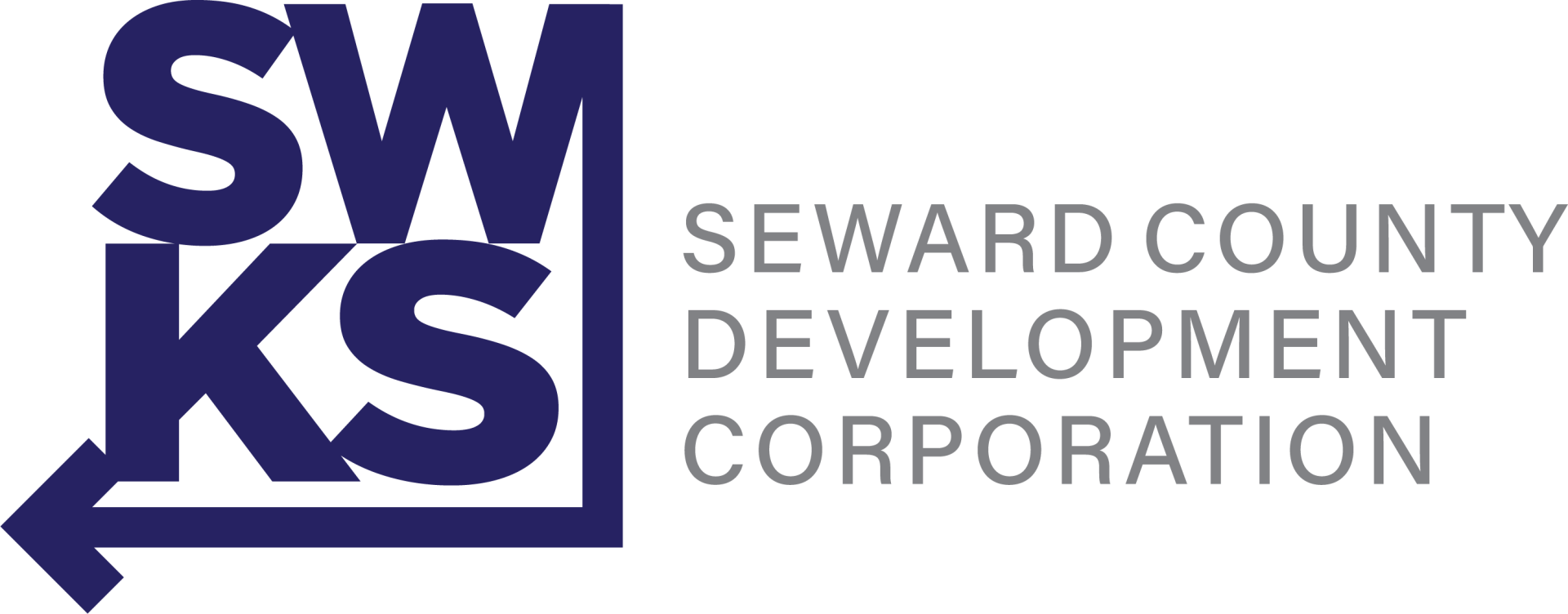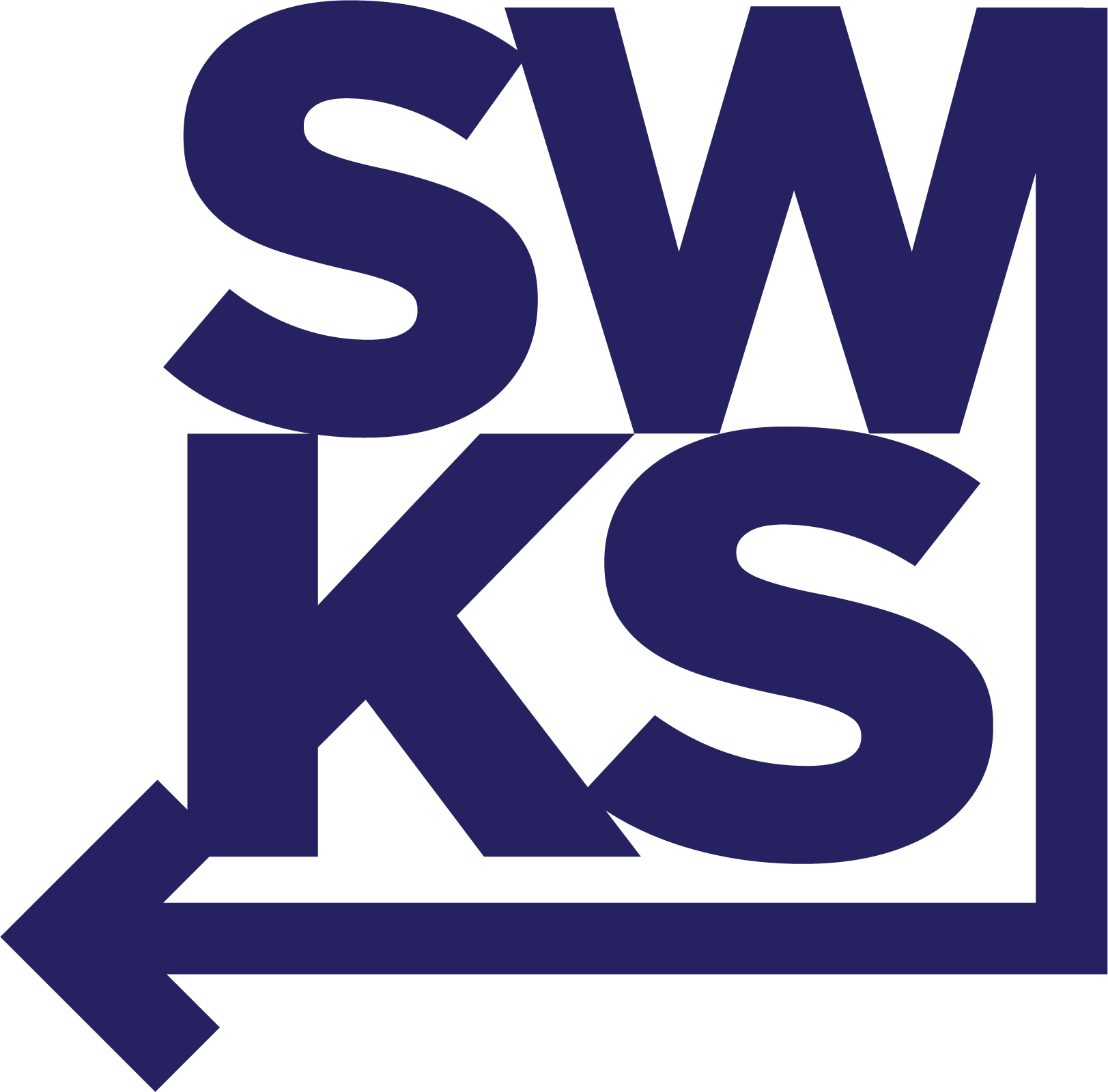January 2022 Newsletter
Exit Strategies and Succession Planning
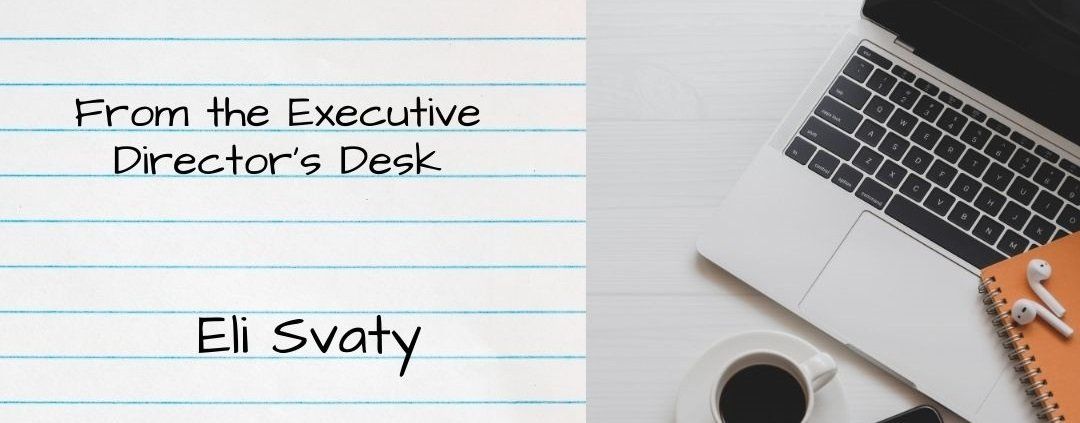
This quarter's WKREDA (Western Kansas Rural Economic Development Alliance) conference included a presentation by Rick Feltenberger, regional director for the Small Business Development Center in Hays and expert in Exit Strategies and Succession Planning. His information was both interesting and terrifying. For example, western Kansas could potentially lose $148 billion in wealth in the next ten years. This figure is based on the wealth that currently exists in retirement-aged business owners who don't have a plan for their businesses. Without a plan, these businesses will simply close or move away.
Additional statistics taken from a WKREDA Area Business Survey conducted by the Small Business Development Center should offer a warning to us all. Here are some of the key findings:
General Business Information
- 45% of owners are over the age of 51
- 46% employ more than 5 people
- 54% of owners have over half of their total net worth in their business
- 30% have +90%
- Business Succession Planning50% of business owners want to transition within 0-9 years
- As of 2020, we had 11,145 businesses in the WKREDA region
- 67% have no advisory team
- 0 knew their exit options
- 80% have no plan
- 49% is the national average
First, we need to celebrate these businesses and their owners who have dedicated their lives to launching and continuing successful businesses in our communities and our region. Without these entrepreneurs, we would not have the quality of life that we've come to enjoy in western Kansas. Second, we need to ensure that these owners are getting the support they need to transition into retirement. This process takes time, and it's critical that the proper steps are taken to ensure that the business can remain viable for a community, and the owner can receive the compensation he or she deserves for a job well done.
At our WKREDA meeting, the unofficial options for selling or transitioning a business were described this way: If you don't care what you get, it doesn't matter what you do.
- If it matters what you get, then you must plan for what you do.
- If you don't want to have a plan, then you really don't care what you get.
Whether you're in your twenties or you're in your seventies, it's never too early to begin planning your exit strategy for your business. This doesn't mean you're ready to make that transition, but it will ensure that when you are, you'll be prepared to do the best for your family, your business, and your community.
Stay tuned for more information on Succession Planning in 2022. If you know you need to start, but you haven't known where to begin, give me a call. While my own personal business transition experience is limited to a family farm transition--a messy and long process itself--I can connect you with the experts who are available in our region. We want to see our local economy continue to grow, but in order to do that, we must ensure that we keep the businesses that we already have.
Find Employees Using the Western Kansas Jobs Website

Each month, the Kansas Department of Labor and KansasWorks releases the state's unemployment numbers for the previous month. The data are separated by counties and offer several points of comparison for communities and employers to review. The November numbers for Seward County and the majority of Kansas reinforced what our employers have been saying for months: we can't find employees. Currently, Seward County's unemployment rate is 2.1%. As a comparison, our unemployment rate in November of 2019 was 2.6%.
Local businesses--both large and small--are working to attract committed and talented workers. As an additional resource in this effort, WKREDA (Western Kansas Rural Economic Development Alliance) hosts a Western Kansas Jobs website. Businesses in the region can post available positions to this site and expand their pool of potential applicants.
To learn more about how to post an open position, visit our website at https://www.swks.org/growing-your-business or contact Eli at the office (620) 604-5136.
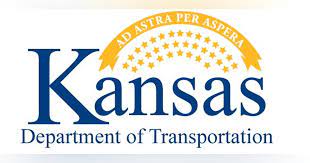
New Highway Projects Announced
Dec 15, 2021
Governor Laura Kelly today joined Transportation Secretary Julie Lorenz to announce the addition of 25 highway modernization and expansion projects totaling $750 million to the development pipeline as part of the Kelly Administration’s bipartisan, 10-year Eisenhower Legacy Transportation Program (IKE).
The pipeline announcement clears the way for preliminary engineering work to begin on these projects, which are located in every region of the state.
“These projects are in every region of the state – and they improve safety, expand economic development opportunities, and strengthen our communities,” Governor Kelly said. “My administration is committed to making short- and long-term infrastructure improvements to benefit future generations of Kansans – just as we rely on investments made by previous generations of Kansans.”
The governor’s release of the list of projects advancing within the IKE pipeline was made in tandem with two other Kansas transportation milestones: impact on Kansas transportation with passage of the federal Bipartisan Infrastructure Legislation (BIL) and the beginning of the construction process for all remaining T-WORKS highway projects.
Secretary Lorenz said BIL will direct to Kansas an additional approximately $145 million annually for the next five years for highways and bridges. She said input from Kansans will help determine what investments will be most meaningful to rural and urban communities across the state.
“Early next year, we will host workshops with stakeholders to share new opportunities for Kansas and to discuss delivery strategies,” said Secretary Lorenz. “We will not only view it through the lens of what works best for KDOT. I’ve asked staff to watch for opportunities for local governments, too.”
Max Dibble, a Philips County commissioner and member of the 2018 Joint Legislative Transportation Vision Task Force, joined Governor Kelly and Secretary Lorenz in making the T-WORKS announcement. Dibble said with today’s construction letting, all delayed T-WORKS highway modernization and expansion projects have moved to construction and fulfilled the legislative requirement allowing KDOT to construct new IKE projects.
A four-lane expressway from Dodge City to Cimarron on U.S. 50 and making intersection improvements and adding three miles of four-lane expressway on K-68 are the two last T-WORKS projects.
“Communities that have waited for years can now celebrate knowing that ground will break soon and these projects will be built,” Dibble said. “Projects promised to Kansans 11 years ago are now underway.”
If you'd like to see what projects are in the works for our region, follow the link below:
Southwest Region Development Pipeline
Capturing Customer Information
Donald Miller has a number of available resources online and several best-selling books meant to serve the business and leadership market. Whether you find value in the material he offers or choose to follow other consultants, one lesson is clear: successful small businesses are capturing customer contact information and using it to stay connected.
While payment apps like Square offer some of these services, it's still possible for customers to avoid submitting an email. Every time that happens, you--the business owner--miss out on a potential connection and choose to leave a return visit for that customer up to chance.
Email campaigns don't have to be annoying. In fact, I'd wager that we're all so used to them now that we don't even find them an inconvenience, especially if we like the products that we're buying. But none of this matters unless you capture the email addresses of your customers.
Donald Miller--and others--have shown that customers are willing to share their emails if they feel they are gaining something of value. This does not have to be product. Below, Miller offers three alternatives to products that you can offer your customers in exchange for their contact information.
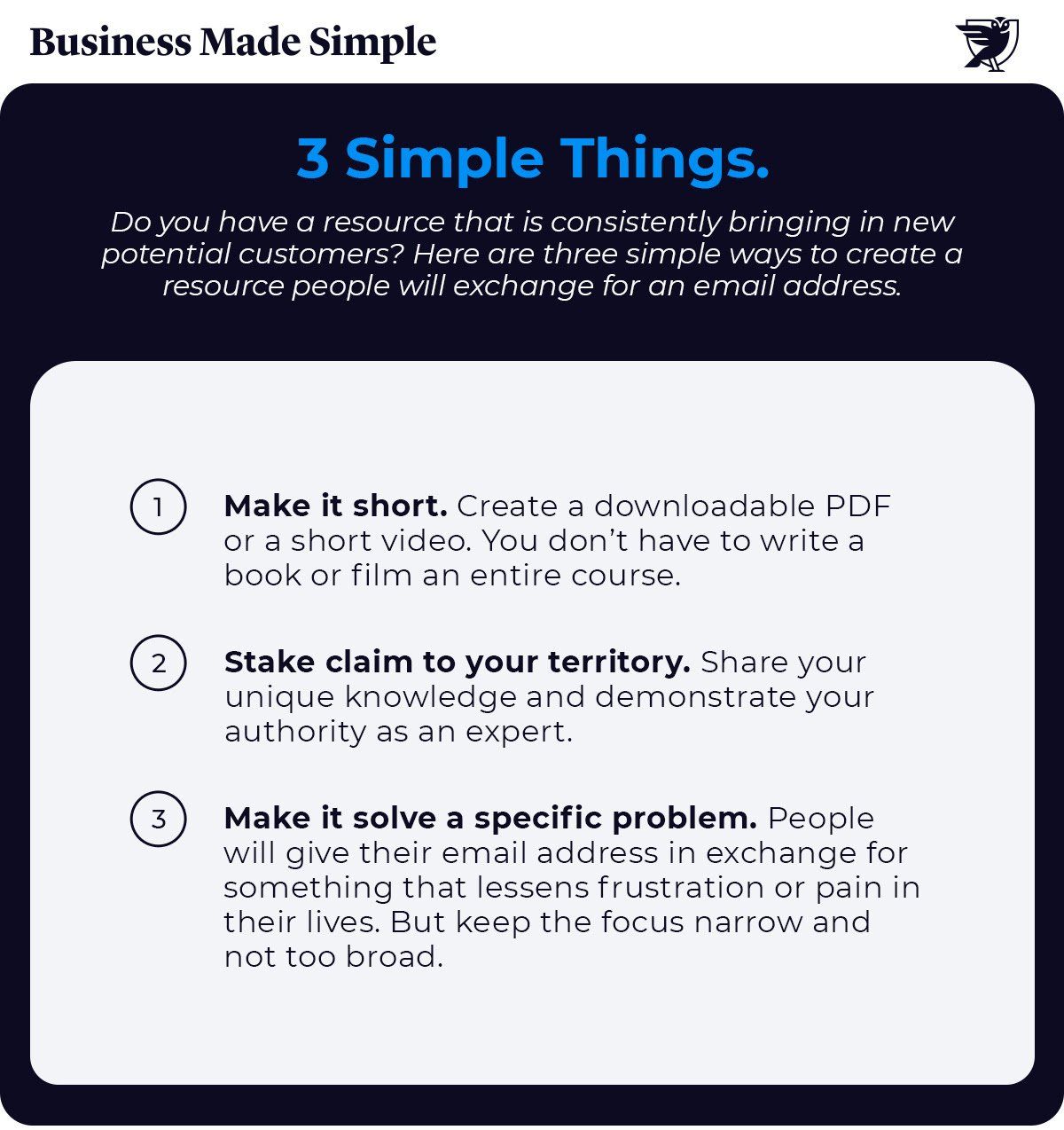
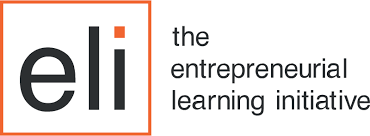
“Complexity Leadership Theory: Shifting from Human Capital to Social Capital”
Originally posted in the Entrepreneurship Learning Initiative's November 2021 Top of Mind Newsletter.
When we examine current Human Resource practices, we see a keen focus on competency-based, human capital initiatives. While human capital is worth developing, new research suggests we may want to emphasize another set of skills. Social capital, it seems, can have as much to do with innovation and growth in an organization as the skills of individuals. As this paper defines it, social capital is “the competitive advantage that is created based on the way an individual is connected to others.”
In particular, the authors of this piece emphasize group cohesion and brokerage as particularly relevant to HR development practices. By focusing on “facilitating the movement of ideas across a system through bridging and brokering,” they believe we can create more adaptive and innovative organizations. This movement of ideas can breed innovation in existing systems by positing a new theory, complexity leadership theory (CLT). This theory suggests that the everyday interactions of cohesive groups foster adaptability. Then the actions of these groups begin to link up to produce “powerful emergent phenomena.”
The issue is, “in many organizations, these linkages are hard to make because organizational bureaucracy and silos can create obstacles to interconnectivity,” say the authors. However, when an organization has well-established bureaucratic and entrepreneurial systems, they often do not link these vital groups together.
The paper discusses how the most effective organizations bridge this gap through something they call adaptive space. That is a space for interaction and (positive) tension between the organization’s operational and entrepreneurial systems to occur. By allowing these clusters of workers to interact, problem-solve, and connect, more impactful innovation occurs.
How are we fostering innovation in our organizations? How are we leveraging the organic innovation and unleashing hidden potential in our teams?
Get the Paper
What we're doing this month!

The majority of our work at the development corporation consists of supporting local entrepreneurs and businesses as they start or expand their operations. Through our partners, we can provide the expertise and the funding that these ventures need in order to be successful. These same partners and networks also connect us to resources outside of Seward County. This month will bring new opportunities for learning and networking that can help the businesses and communities here at home.
- January 7: Development Corporation Monthly Board Meeting
- January 5: WKREDA Executive Board Meeting
- January 14: Southwest Economic Developers Round table
- January 24: Southwest Chamber Night in Topeka
- January 25: WKREDA Legislative Reception in Topeka
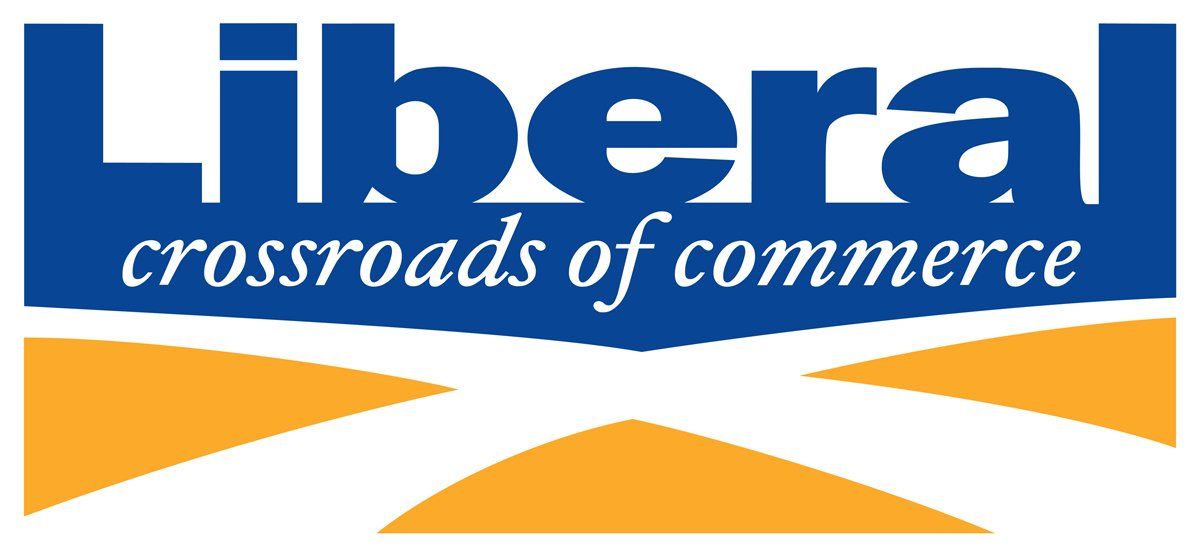
City of Liberal Economic Development News
Cindy Wallace: City of Liberal Economic Development Director
Rural Future Is Real
I wanted to share some items in an article I read by Samuel Abrams from AEIdeas who wrote about the future of rural areas. Many comments made by urban, coastal elites is that one’s future cannot be found in the countryside and believe that Americans often believe that economic growth and jobs can only be found in big cities. They think rural America remains a dead-end, brain drained world with minimal opportunity.
With the Covid-19 pandemic dispersing many Americans around the country, cities are not dominant in the hearts and minds of Americans. Now more Americans are interested in living in rural areas than in big cities and many who live
in rural areas are quite optimistic about the future and still believe in the power of hard work. According to the “2021 American Community Life Survey”, 19% of big-city dwellers rate their neighborhoods as excellent places to live. Residents of towns and rural areas are more positive about their communities with 30% of those who live in small towns and 36% of those in rural areas rate their communities as excellent places to live. According to where Americans would like to reside, most people actually want to live outside of big cities. 42% if Americans would like to live in rural areas and towns compared to 33% who would prefer suburban areas. Only 25% want to live in big cities.
According to the survey it finds Americans are happier in small towns and rural areas. Americans living in rural areas are also highly optimistic about the possibility of upward mobility. With huge improvements in communication, technology and logistics, rural areas are not as isolated as one might expect. Cities will certainly remain important facets of the nation’s environment, but many still feel for those who opt to live away from big cities that their opportunities are plenty and hard work leads to success.
So how can we capitalize on this movement? In Kansas we have the Rural Opportunity Zone which Seward County is a part of. Residents who move here from out of state may be eligible for state income tax credits for up to five years. See all the rules at the following website: https://www.ksrevenue.gov/prtaxcredits-roz.html.
Other states are looking to attract remote workers to their communities. The key is to have fast, reliable broadband service to the area. One example is Paducah, Kentucky which offers a Remote Workers Incentive Program. They offer up to $2,500 in moving expenses, free high-speed internet for a year, no payroll tax for a year and $1,000 in tickets to local events so remote workers can get involved in their new community. They have to show proof of residence and retain a primary residency for at least one year after the initial 12-month program. Some communities, including many in Kansas offer free land if you move into their community and build a home on the land. Of course, they have certain requirements on the home value and rules and restrictions what you can or cannot build on the land.
The City of Liberal is working hard to make Liberal more attractive to residents and newcomers alike such as road and street improvements, a new wastewater treatment facility, expanded parks, the southside recreation center, Adventure Bay Water Park, recruiting more retail, housing programs, façade grants, and beautification grants. Contact the Economic Development department to learn more about these programs and much more! Be sure to check out our website at chooseliberal.com. If you have any pictures depicting Liberal and Seward County, please be sure to email them to me! Who knows, I might use one of them on our website!! Here’s hoping for a happy and prosperous 2022!!
